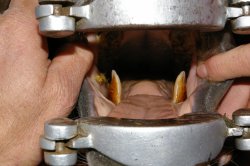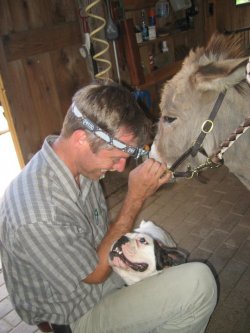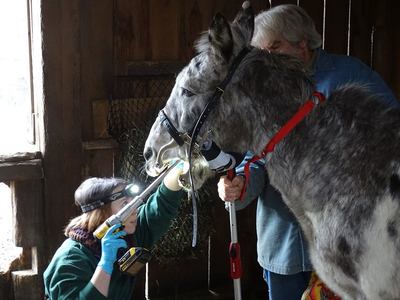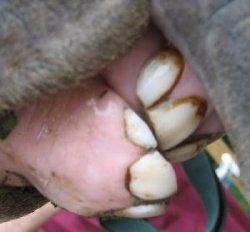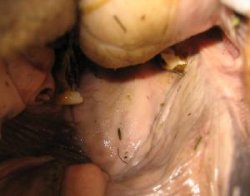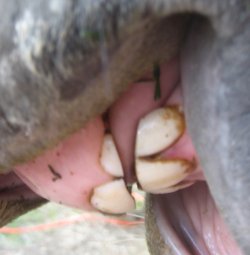Per the AAEP recommendations, All horses should have a veterinary oral and dental examination at least annually. For horses 2-5 years, over 20 years, and those with known dental pathology, more
frequent visits may be necessary. We can provide dental care for your horse on the farm or at our equine facility. Every horse should have an oral exam each year, even if they’re not having problems, as an oral exam checks for more than just sharp points. Many horses need regular preventive dental maintenance (i.e. a float) every 1-2 years. Unlike people, horses’ teeth have an eruption rate of 2-3mm per year. The teeth should wear in correspondence to yearly eruption rate. Malocclusions, or improper position of the jaw or teeth, can lead to uneven wear and discomfort for the horse.
Identifying dental problems early is important. There are many problems that may be related to poor dental health in the horse: loss of food while eating; grain in water bucket; difficulty chewing or excess salivation; loss of body condition; large undigested food particles in manure; head tilting or tossing; bit chewing; foul odor from the mouth or nostrils; or nasal discharge or swelling of the face. Other horses may not show noticeable signs, because they just simply adapt to their discomfort.
We recommend yearly evaluation of your horses’ teeth to avoid some of these problems. Should your horse require dental maintenance (or “floating”) most of our clinicians practice sedated motorized dentistry; hand floating or sedation free are a special request and not every doctor provides those services so please ask when booking appointments. Check out our photos below of some interesting dental cases!

